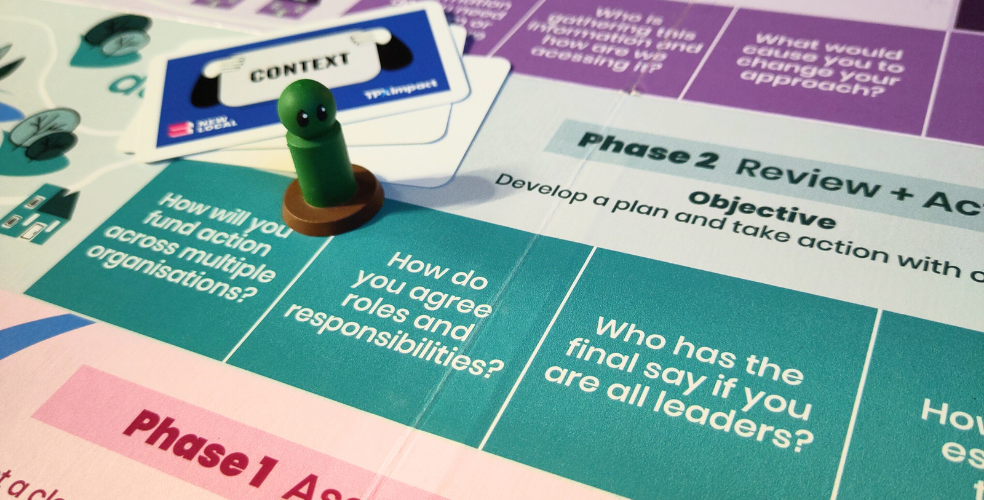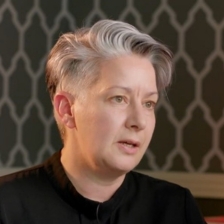Being a leader in local government is tough, there’s no getting around it. The pressures are vast and varied, whether it’s managing ever-tightening budgets, trying to support your community, or responding to crises. And sometimes it can feel like you’re stuck using the same tools and approaches to tackle new and evolving challenges.
But what if there was a way to shake things up? What if “play” could be the key to unlocking more creative, flexible leadership?
The leadership challenge
For a long time, local authorities have operated within a framework driven by efficiency measures and targets. This approach to services has been important, improving the management and structure of many councils. But it’s also created a culture that prioritises risk aversion and control.
Many senior leaders in local government come from professional backgrounds that emphasise order and precision. These skills are essential for good governance, but they can also lead to leadership styles that are cautious and resistant to experimentation. This can make it difficult to break away from “tried and tested” solutions and find new ways to approach big problems, particularly in larger councils where there are lots of staff, management layers and teams.
The power of play
This is where play comes in. At first glance, it might seem that things like games have no place in the serious world of local government leadership. But that’s precisely why they can be so powerful. They introduce something that’s missing in the day-to-day.
When we’re playing games and working with hypotheticals, there’s no “right” way to do things. You can experiment, take risks, and test new ways of thinking without fear of getting it wrong. This mindset can help leaders step outside the rigid frameworks/ established norms they’re used to and open up new ways of thinking.
Building skills and breaking down barriers
In games, things don’t always go to plan—and that can be a great tool for teaching new skills. People can get more comfortable with finding new ways to adjust to new information and situations on the fly. This kind of flexibility can be essential in the fast and ever-changing world of local government, where new challenges and issues can come at you fast.
Play also levels the playing field by breaking down hierarchies. In a game, everyone—regardless of role or rank—can contribute ideas. This creates a more open, collaborative environment where diverse perspectives can lead to truly innovative solutions. By fostering inclusivity and equal participation, it encourages more creative problem-solving.
Collaboration and freedom to fail
Traditional leadership training can sometimes reinforce silos and competition, but by designing collaborative games, play does the opposite. It forces leaders to rely on others, listen more closely, and build solutions together. In local government, where we’re often working in silos, this can be a game-changer and drive that collaboration between teams and councils that we so desperately need.
Perhaps most importantly, it creates a safe space to fail. In leadership, failure is often seen as something to avoid at all costs, but when we’re playing games, it’s just part of the process. It allows us to test new ideas without the fear of real-world consequences, which can lead to breakthroughs when applied to our day-to-day work.
Play in action
We saw the power play can have during the Radical Leaders event we hosted with New Local. Together, we designed a game for this event which challenged the local government leaders in attendance to tackle complex issues around emergency planning and community resilience. Instead of following the typical, highly structured approach to crisis management, they were asked to engage with the problems more fluidly and imaginatively.
Through these challenges and exercises, participants were able to explore not just immediate responses to crises, but long-term recovery strategies that centred around community empowerment. The unpredictable nature of the game forced them to consider different scenarios and test new leadership styles that aren’t what they would typically reach for in a high-pressure scenario. It opened up new possibilities for the players, allowing them to see challenges from fresh angles and come up with more innovative solutions. It was a reminder that stepping out of rigid, risk-averse thinking can lead to breakthroughs, even in the high-stakes world of local government.
New skills for a new future
The challenges we face in local government today are increasingly complex, and the traditional ways of solving problems aren’t always enough anymore. Play offers a powerful way to develop the flexibility, creativity, and adaptability that today’s leaders need.
By embracing new ways of thinking, we can help public sector leaders break free from rigid structures and approach problems with fresh eyes. It’s time to move beyond the default leadership styles that have served us in the past and make room for a more creative, innovative approach to the future.
After all, solving big problems sometimes requires thinking in ways that feel unfamiliar—and we believe play is one of the most effective ways to do that. Let’s lean into it.

A game-changing approach to leadership
Radical Leaders: The Game! uses real-world crisis scenarios to challenge local government leaders, fostering collaboration, agility, & community focus.
Read moreOur recent insights
Transformation is for everyone. We love sharing our thoughts, approaches, learning and research all gained from the work we do.

Connecting government services for greater impact
Breaking down silos and joining up services is key to delivering better public outcomes. At our latest Digital Forum, we explored how to make it happen.
Read more
Building better public services with service patterns
As part of Services Week 2025, we explored how service patterns can create more consistent, efficient, and user centred services.
Read more
Designing cross-cutting public services
How we can join up systems, data, and policy to create connected public services that work for everyone.
Read more


